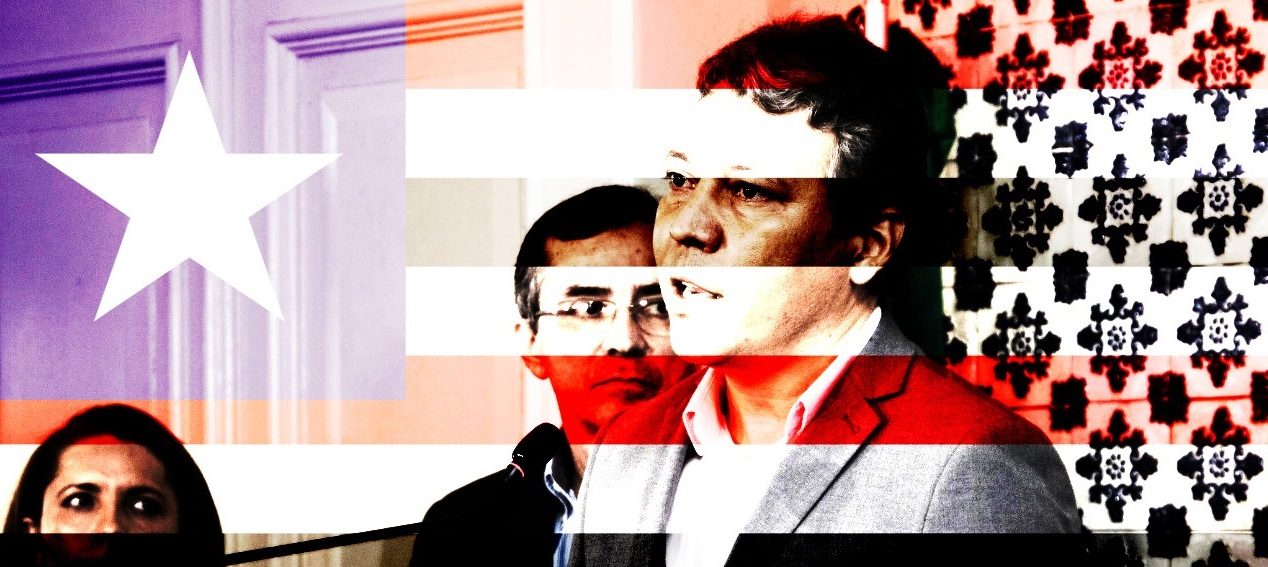An interview with Dr. Rodrigo Lopes
by Brian Mier
On March 16, with coronvirus cases still in the single digits, the Maranhão State government inaugurated Brazil’s first public testing center, one of a series of initiatives that was preemptively rolled out to help prepare for the fight against the pandemic.
Despite producing huge amounts of wealth and commodities for world markets since the 1600s, for the last 50 years Maranhão has consistently been the poorest state in Brazil, due in part to mismanagement and cronyism by the political machine commandeered by the family of former President José Sarney, who essentially controlled the state political apparatus and hundreds of municipal governments from the 1960s until 2015. That year things changed as Flavio Dino, from the Brazilian Communist Party (Partido Communista do Brasil/PC do B), took office as Governor. Dino immediately raised public teachers salaries to the nation’s highest at R$6300/month – double that of much wealthier states in the Southeast. He removed military dictators’ names from all of the public schoools, and fought to maintain the state’s public health budget in a scenario of deep austerity cuts imposed by the coup government of Michel Temer, and the deportation of hundreds of Cuban doctors imposed by Jair Bolsonaro. Dino is one of 8 left wing state governors from Brazil’s northeastern region, where Fernando Haddad beat Jair Bolsonaro by 70-30% in the 2018 presidential elections. The northeastern governors have formed a partnership to fight the pandemic, to fight against far right President Jair Bolsnonaro’s irresponsible bungling, and have collectively reached out to the Chinese government for help fighting the pandemic.
Dr. Rodrigo Lopes is one of the people on Maranhão’s front lines of the fight against Coronavirus. Former director of the state’s public hospital system, he is currently serving as special advisor to State Health Secretary Carlos Lula. I interviewed him over the phone on the evening of March 31, 2020.
What are things like right now in Maranhão? Are there areas where the coronavirus is spreading outside of the capital, São Luis?
As of March 31, 2020, we have 52 confirmed cases in Maranhão, in the capital and in the upstate city of Imperatriz. There is already a protocol in place so that our public hospitals can treat people with severe respiratory problems in a way that enables us to continue treating all patients who need the public health system for problems unrelated to Covid-19.
What is the State Government doing to fight the virus?
In addition to measures restricting the circulation of people, such as the closing of schools, commerce and non-essential services, the State Government is increasing the number of ICU units in the capital and across the state, specifically to deal with coronavirus patients. This means that by the time the crisis hits its peak we will have the capacity to treat the patients with the most severe cases.
According to the recommendations of the Health Ministry we are testing all health professionals and all patients who are interned in our hospitals. We also inaugurated a Covid 19 Testing Center on March 16, 2020 which has slowed the spread of the virus here because with it we can track all of the cases that are arriving from other parts of the country, as we are also doing at the sanitary checkpoints that we have set up on all highways and airports in Maranhão.
In a recent interview, Dr. Margareth Dalcomo from Fiocruz said that, due to the increase in hospitalizations of people with severe respiratory problems across Brazil and due to lack of adequate testing, she believes that the real number of coronavirus cases at the national level could be as much as 10 times higher than the official statistics. Do you think the situation in Maranhão is similar? How is the government working to produce more precise case numbers?
Her comments are relevant and here in Maranhão we are working according to the same logic. Within the State Health Ministry we have a specific sector which works with information technology for advanced monitoring of health indicators, and in the specific case of this pandemic, it is making real-time projections about the challenges that lie ahead. CONECTASUS, as it is called, produces statistics that help our State Health Secretary, Carlos Lula, make decisions.
There are a lot of rumors being spread about coronavirus and, unfortunately, some of them are being spread by world leaders like Donald Trump. One rumor that is circulating in the anglo north is that average high temperatures above 28 C can slow or end the spread of the virus. However, São Luis has average year-round high temperatures between 30 C and 32 C, and cities upstate like Imperatriz and Codó are even hotter. From your standpoint, on the front lines of the fight against coronavirus in Maranhão, do you see any climactic factors such as heat that are slowing the spread of the virus?
There are no scientific studies to date that support that hypotheses. Therefore, we are not using it as a factor in any of our decision making. All of the 3 macro-regions of the state, and its 18 health districts are enacting the same precautionary public policies regarding coronavirus.
Is there anything else you would like to add?
We have had support in our dialogue with the three branches of the federal government. Both the São Luis city government and Maranhão Federal University (UFMA) have been important partners in creating joint work flows for sensitizing health professionals and in the creation of new ICU berths specifically for coronavirus patients. This strategy has been fundamental so that, together, we will have more strength to face this battle.
[qpp]

